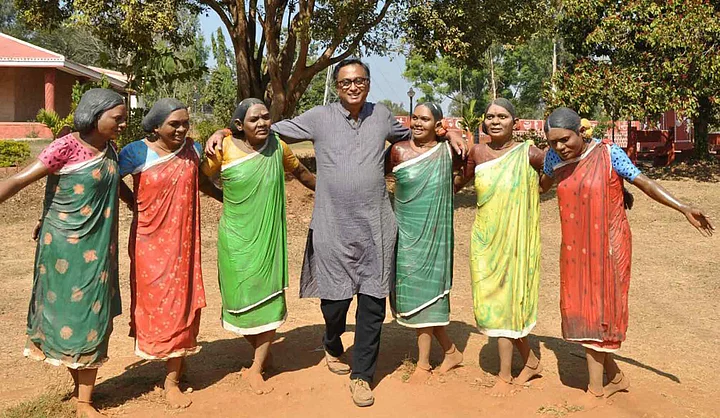It is World Parkinson’s Disease Day on Monday (11 April). More than 7 million Indians continue to live with this progressive, debilitating disease of the brain which still has no cure.
57-year-old Hari Prasad refuses to let his Parkinson’s diagnosis define him. Instead, this “full of life, mostly happy, sometimes sad, but always human”, ex-General Manager of a multinational giant has just come back from an adventurous 8,500 kilometer road trip from Bangalore to Bhutan and back with his wife and friends.
This year marks eight years since Hari Prasad was diagnosed with Parkinson’s disease. Looking at him, it is clear that he doesn’t give Parkinson’s the top billing in his life. But facing facts, Parkinson’s is an progressive, unpredicatable, debilitating neurological condition that requires massive care.

“Trembling Hands & Unstable Feet Did Not Stop Me From Pursuing My Dreams”

A shaky, slow, stiff hand was all it took to rattle his world.
I could have never imagined that a casual trip to a doctor would end up in this shocking diagnosis. 48 is not the age for a serious neurological ailment!Hari Prasad, Parkinson’s Patient
Shaking from a tremor affects your overall well being. Parkinson’s tremors are painful, tiring and can wear a person out.
Initially, it was just occasional tremors in my left hand which turned into regular cramps and pain after few months. With time I became more and more dependent on the medications.Hari Prasad, Parkinson’s Patient
Then in 2014, there came a point in Prasad’s life when buttoning his shirt was a task, putting a shaky fork to pick up food from the plate and correctly maneuver it to the mouth, without dropping the food was tough.

The disease often manifests outwardly with telltale tremors, but scientists say degeneration in the brain starts much earlier. As it progresses, it robs people of co-ordination, balance and even the ability to speak coherently. The exact cause of Parkinson’s is still unknown, however, genetic mutation is responsible to some extent.
Parkinson’s Treatment

Parkinson’s affects everyone differently. Some like Prasad cope well with it others sadly don’t. For six years after the diagnosis he managed to work.
But the problem with Parkinson’s medication which gets converted into dopamine in the brain, is that the more you take, the more you need to achieve the same level of effectiveness over time. The side effects can be drastic - there is always the fear of becoming totally ‘spacey’ or manic with uncontrolled muscle movements.
So in 2015, when the dizziness and trouble in walking, sitting, eating was getting the better of Prasad he underwent the Deep Brain Stimulation surgery.
Related Read: How my Father, the Parkinson’s Patient, Aced the Spoken Word
Deep Brain Stimulation Surgery (DBS)

In the beginning of 2015, doctors drilled two holes in Prasad’s skull and implanted electronic leads into it. These run from the brain, down the neck, under the skin to a pacemaker (brain stimulator) in his chest.
Till now there is no procedure which can cure Parkinson’s completely. DBS gives massive relief to most people who cannot continue with their regular life. The surgery is done fully awake and costs around 9 lakh rupees.
So I asked Prasad, how did you prepare yourself to be drilled into your head with open eyes? “My neurologist said, ‘you’ll know’”. And he did. Guess when you reach the point when brain surgery is more inviting that living with uncontrolled movements, you are ready.
What got better after DBS?
“Everything! The surgery changed my life both emotionally and psychologically. There is a 95% improvement in my symptoms. I have the energy of an eight-year-old and my wife notices the ‘sparkle’ in my eyes. I have drive and motivation again.”
And boy he has the drive!
After recovering from the surgery, Prasad took voluntary retirement from the corporate world and has travelled extensively across ten states in India. He even drove to Bhutan in a trip spanning 41 days.
People like Hari Prasad are the cheerleaders of Parkinson’s, the living proof that even with a progressive, debilitating disease you can live rich, fulfilling lives. Sometimes, as Prasad says, the disease acts like a second innings opening doors and experiences which were never imagined before.
What was your Parkinson’s journey like? Do you still sugarcoat the gruesome details of the disease or you’ve made it more palatable?
Related Read: For a Dad with Parkinson’s, I’d Get Him All the Junk Food He Wants
(At The Quint, we question everything. Play an active role in shaping our journalism by becoming a member today.)
